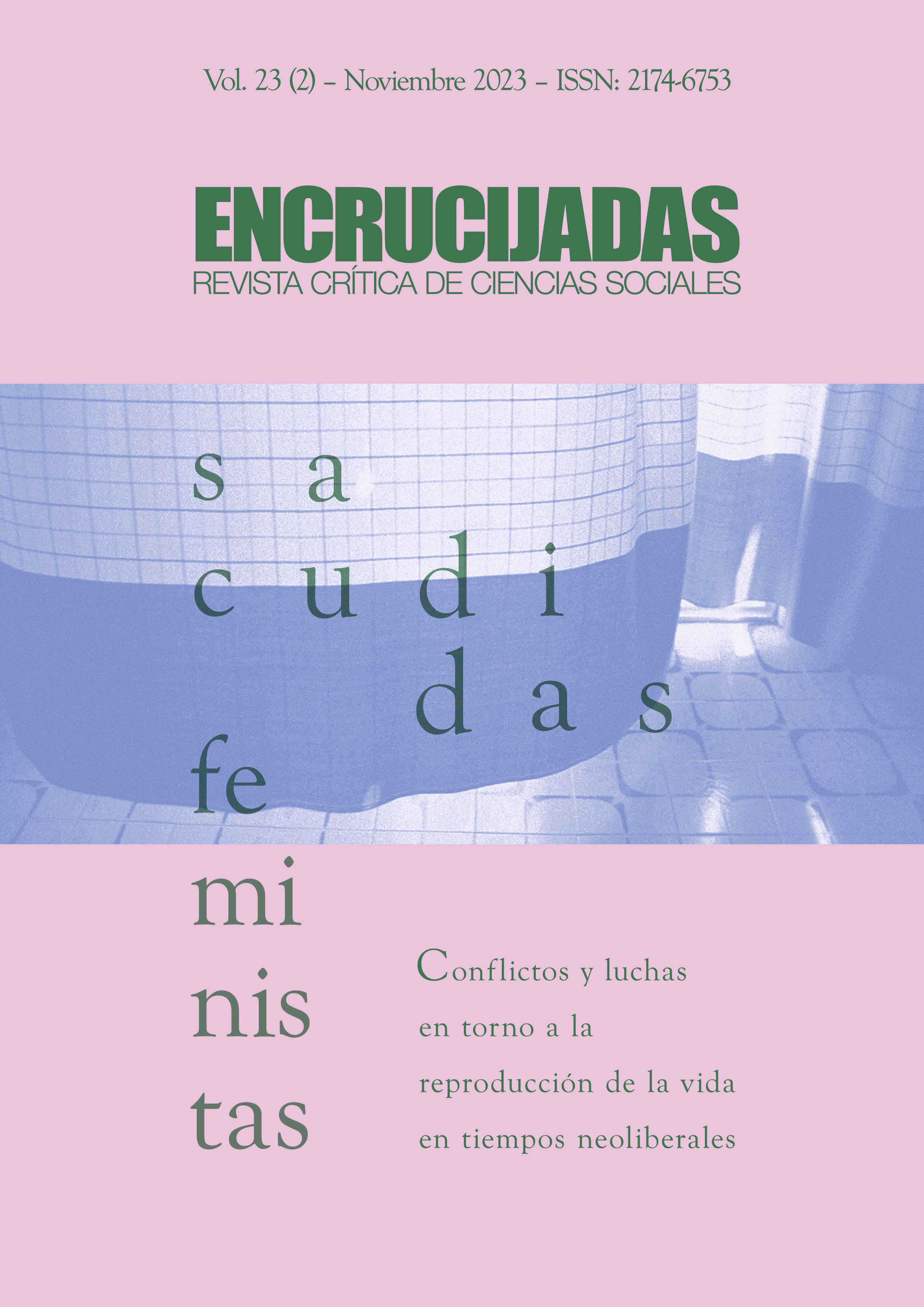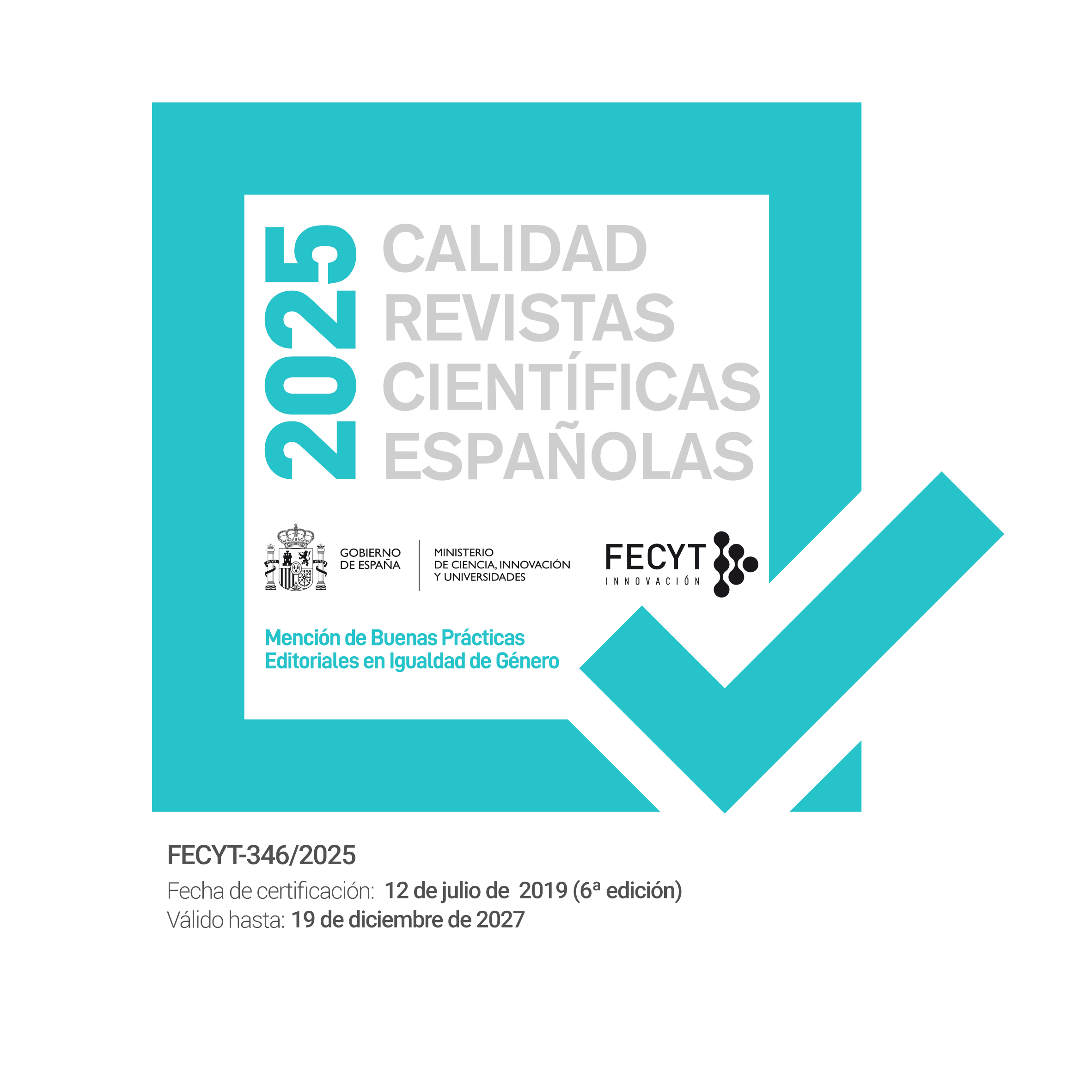From social reproduction to the social production of humanity. Epistemological explorations for the exercise of a feminist anthropology
Keywords:
feminist epistemology, social reproduction, materialist feminism, forms of living, anthropology of valueAbstract
This article aims to review critically and from an anthropological perspective the metaphor of the two spheres (productive and reproductive) widespread in the study of the field of the economic. This exercise is conceived as a first exploration and/or game that aims to reflect on the explanatory dependence of the dichotomous frameworks of naturalistic ontology. The article tries to dialogue the contributions of feminist anthropologists with recent postulates of Marxist feminism and the anthropological theories of value. The article will begin with a review of the critiques that feminist anthropologists made of the concept of social reproduction in the 1970s and 1980s, and then move on to analyze the theoretical efforts made by the materialist feminist anthropologist, part of Marxist feminists and the anthropologists of value to reconceptualize the concepts of production and of relations of production. I will postulate that the everyday economies and forms of living perspectives can provide us with a good starting point for the production of feminist enthographies of inequiality that will challenge and transform androcentric definitions of the social world.
Downloads
References
Abu-Lughod, Lila (1990). Can There Be a Feminist Ethnography? Women & Performance: a Journal of Feminist Theory, 5(1), 7-27. https://doi.org/10.1080/07407709008571138
Adan, Carme (2006). Feminismo y conocimiento. De la experiencia de las mujeres al cyborg. Ediciòns Espiral Maior.
Bear, Laura; Karen Ho; Anna Tsing y Sylvia Yanagisako (2015). Gens: Un manifiesto feminista para el estudio del capitalismo. Society for Cultural Anthropology, 30 de marzo, (enlace).
Blázquez, Norma (2017) Epistemología feminista. Temas centrales. En D. da Rosa, M. Caetano y P. Almeida de Castro (eds.), Gênero e sexualidade: Intersecções necessárias à producção de conhecimentos (pp. 11-30). Realize Editora.
Borderías, Cristina y Cristina Carrasco (1994). Introducción: las mujeres y el trabajo: aproximaciones históricas, sociológicas y económicas. En C. Borderías, C. Carrasco y C. Alemany (eds.), Las mujeres y el trabajo: rupturas conceptuales. (pp.15-110). Icaria/FUHEM.
Chamoux, Marie-Nöelle (1994). Societés avec et sans concept de travail. Sociologie du travail, 36, 57-71. https://doi.org/10.3406/sotra.1994.2149
Collier, Jane y Sylvia Yanagisako (eds.) (1987). Gender and Kinship. Essays Toward a Unified Anaylisis. Standford University Press.
Comaroff, John L. (1987). Sui genderis: feminism, kinship theory, and structural 'domains'. En J.F. Collier y S.J. Yanagisako, Gender and Kinship. Essays Toward a Unified Analysis (pp.53-85). Standford University Press.
Combes, Danièle y Monique Haicault [1984] (1994). Producción y reproducción, relaciones sociales de sexo y de clase. En C. Borderías; C. Carrasco y C. Alemany (eds.), Las mujeres y el trabajo: rupturas conceptuales (pp.533-556). Icaria/FUHEM.
Curiel, Ochy (2017). Género, raza, sexualidad: debates contemporáneos 1. Intervenciones en estudios culturales, 3(4), 41-61.
Edholm, Felicity; Olivia Harrys y Kate Young (1978). Conceptualising Women. Critique of Anthropology, 3(9-10), 101-130. https://doi.org/10.1177/0308275X7800300905
Elyachar, Julia (2005). Markets of dispossession. NGOs, economic development, and the state in Cairo. Duke University Press. https://doi.org/10.2307/j.ctv111jjq4
Federici, Silvia (2019). Social reproduction theory. History, issues and present challenges. Radical Philosphy, 2(04), 55-57.
Fraser, Nancy (2020). Los talleres ocultos del capital. Traficantes de sueños.
Goikoetxea, Jule y Albert Noguera (2021). Estallidos. Revueltas de clase, identidad y cambio político. Bellaterra Edicions.
Goldstein, Donna (2013). Laughter out of place. Racle, class, violence and sexuality in a Rio Shantytown. University of California Press.
Graeber, David [2013] (2022). Es el valor lo que da existencia a los universos. Quid16. Revista del Área de Estudios Urbanos, 18, 8-34.
Guillaumin, Colette [1995] (2003). Racism, Sexism, Power and Ideology. Roulledge. https://doi.org/10.4324/9780203422243
Haraway, Donna (1995). Ciencia, cyborgs y mujeres. La reinvención de la naturaleza. Ediciones Cátedra.
Harding, Sandra (1993). Ciencia y feminismo. Ediciones Morata.
Haugg, Frigga (2018). Trece tesis del marxismo-feminismo. International Marxist Feminist Conference, 29 de octubre, (enlace).
Haugg, Frigga (2006). Hacia una teoría de las relaciones de género. En A. Boron, J. Amadeo y S. González (eds.), La teoría marxista hoy. Problemas y perspectivas (pp.327-339). CLACSO.
Hill Collins, Patricia [2000] (2012). Rasgos distintivos del pensamiento feminista negro. En M. Jabardo (ed.), Feminismos negros. Una antología (pp. 99-134). Traficantes de Sueños.
Kergoat, Danielle [1984] (1994). Por una sociología de las relaciones sociales. Del análisis crítico de las categorías dominantes a una nueva conceptualización. En C. Borderías, C. Carrasco y C. Alemany (eds.), Las mujeres y el trabajo: rupturas conceptuales (pp.515-532). Icaria/FUHEM.
Leacock, Eleanor y June Nash (1977). Ideologies of sex: archetypes and stereotypes. Issues in Cross-Cultural Research, 285(1), 618-645. https://doi.org/10.1111/j.1749-6632.1977.tb29384.x
Maffía Diana y Danila Suárez (2021). Epistemología Feminista. En S. Gamba y T. Diz (eds.), Nuevo diccionario de estudios de género y feminismos (pp.217-220). EUDEBA.
Mathieu, Nicole-Claude (1973). Homme-Culture et Femme-Nature ? L'homme. Revue française d'anthropologie, 13(3), 101-113. https://doi.org/10.3406/hom.1973.367364
Méndez, Lourdes (2007). Antropología feminista. Síntesis.
Méndez, Lourdes (2014). Feminismos en movimiento en el Estado Español. ¿Re-ampliando el espacio de lo político? Revista Andaluza de Antropología, 6, 11-30. https://doi.org/10.12795/RAA.2014.i06.01
Méndez, Lourdes (2019). Retos de la Antropología Feminista: entre teorías y prácticas etnográficas. Mulleres e antropoloxía en Galicia. Antropoloxía aplicada na acción sociocultural. Consello da cultura galega, 12 de junio, Santiago de Compostela.
Méndez, Lourdes (2022). Habitaciones propias: controversias y producción de conocimiento feminista. I Congreso de Antropología Feminista, 8-10 de junio, Donostia/San Sebastián.
Millar, Kathleen (2018). Reclaiming the discarded. Life and Labor on Rio's Garbage Dump. Duke University Press. https://doi.org/10.1215/9780822372073
Moore, Henrietta (2009). Antropología y feminismo. Ediciones Cátedra.
Naredo, José Manuel (2015). La economía en evolución. Siglo XXI.
Narotzky, Susana (1995). Mujer, mujeres, género. Una aportación crítica al estudio de las mujeres en las Ciencias Sociales. CSIC.
Narotzky, Susana (2004). Antropología económica: nuevas tendencias. Melusina.
Narotzky, Susana (2013). Economías cotidianas, economías sociales, economías sostenibles. Icaria.
Ortner, Sherry B. (1972). Is Female to Male as Nature Is to Culture? Feminist Studies, 1(2), 5-31. https://doi.org/10.2307/3177638
Pérez Orozco, Amaia (2014). Subversión feminista de la economía: aportes para un debate sobre el conflicto capital-vida. Traficante de sueños.
Rofel, Lisa y Sylvia Yanagisako (2019). Fabricating transnational capitalism. A collaborative ethnography of Italian-Chinese global fashion. Duke University Press. https://doi.org/10.1215/9781478002178
Tabet, Paola (2018). Los dedos cortados. Universidad Nacional de Colombia.
Tsing, Anna (2021). La seta del fin del mundo. Sobre la posibilidad de vida en las ruinas capitalistas. Capitán Swing
Turner, Terence (2010). La producción social de la diferencia humana como fundamento antropológico de los derechos humanos negativos. Revista de Antropología Social, 19, 53-66.
Wallman, Sandra (1979). Social Antrhopology of Work. Academic Press. https://doi.org/10.2307/3032346
Yanagisako, Sylvia (1987). Mixed metaphors: Native and Anthropological Models of Gender and Kinship Domains. En J. Colliery y S. Yanagisako (eds.), Gender and Kinship. Essays Toward a Unified Anaylisis (pp.86-118). Standford University Press.
Downloads
Published
How to Cite
Issue
Section
License
Copyright (c) 2023 Encrucijadas. Revista Crítica de Ciencias Sociales

This work is licensed under a Creative Commons Attribution-NonCommercial-NoDerivatives 4.0 International License.
Los autores/as conservan los derechos de autor y ceden a la revista el derecho de la primera publicación, con el trabajo registrado con la licencia de atribución de Creative Commons Reconocimiento-NoComercial (CC-BY 4.0), que permite a terceros utilizar lo publicado siempre que mencionen la autoría del trabajo y a la primera publicación en esta revista. Encrucijadas permite y se anima a todas las personas autoras a depositar la versión final publicada en repositorios institucionales o temáticos de acceso abierto, cumpliendo en caso necesario los términos establecidos por la entidad financiadora de la investigación.





